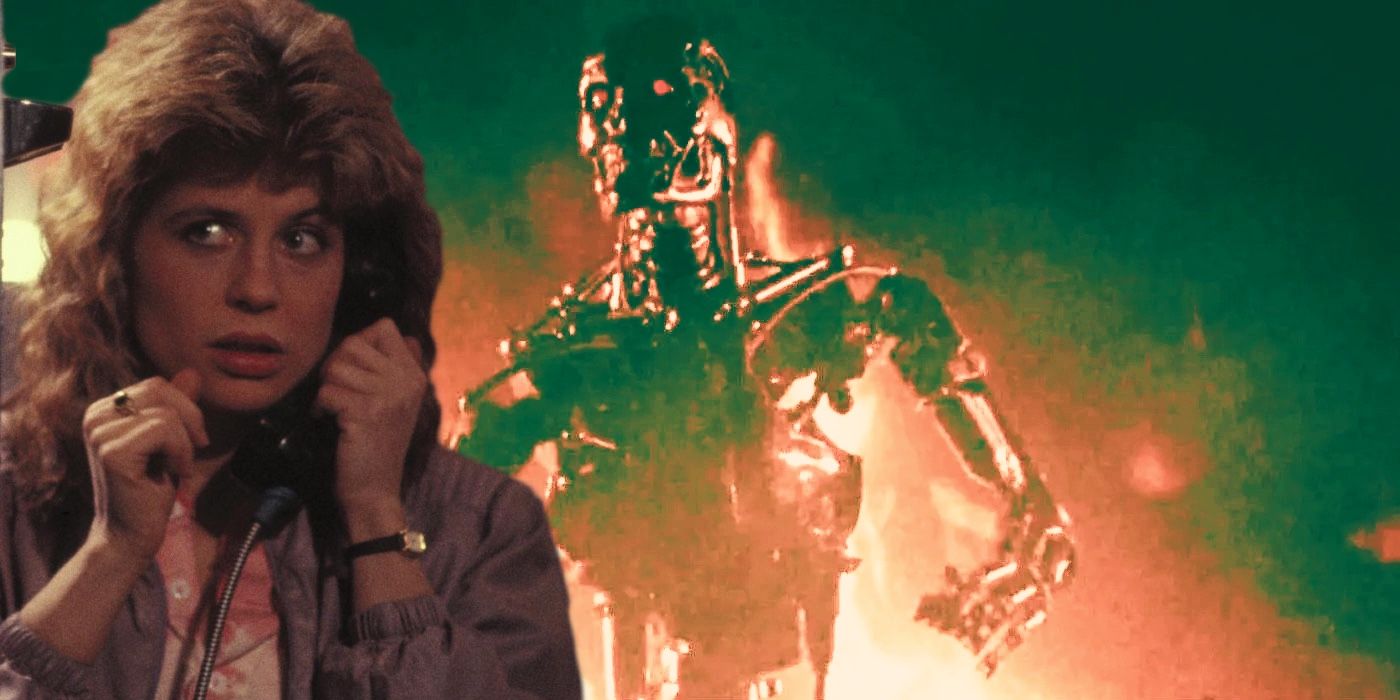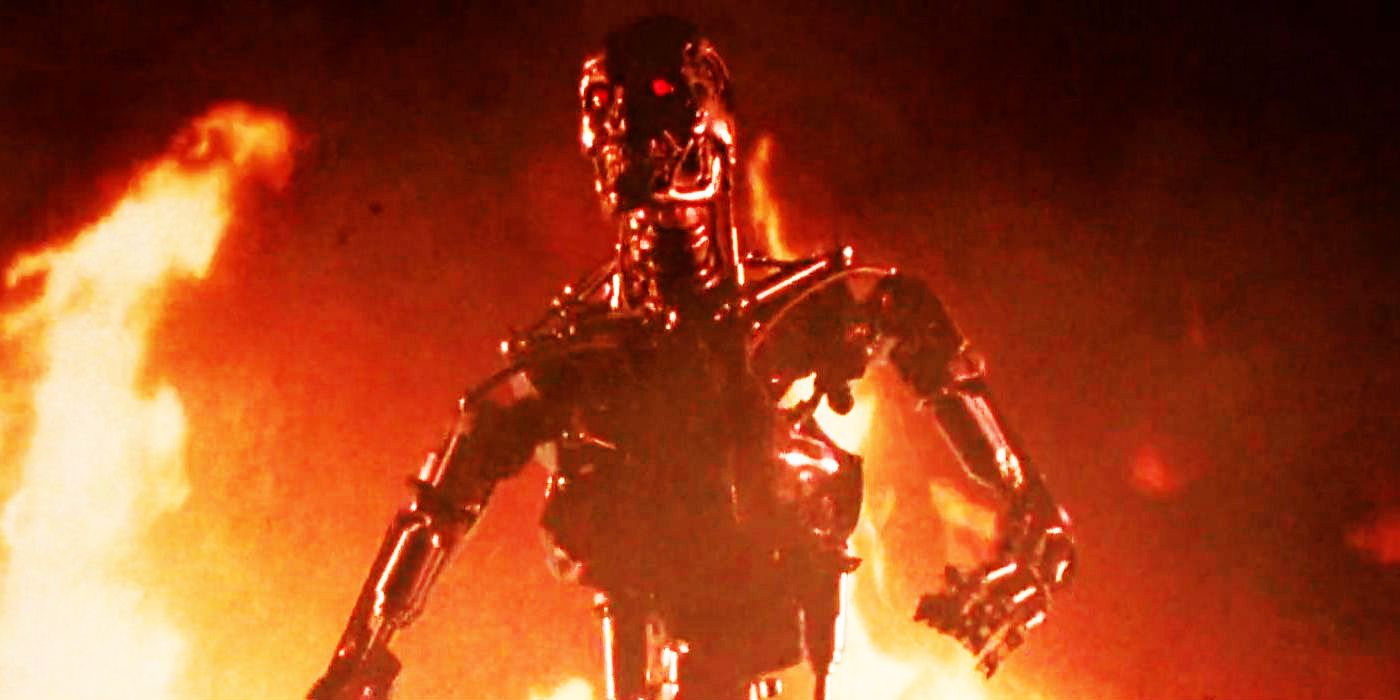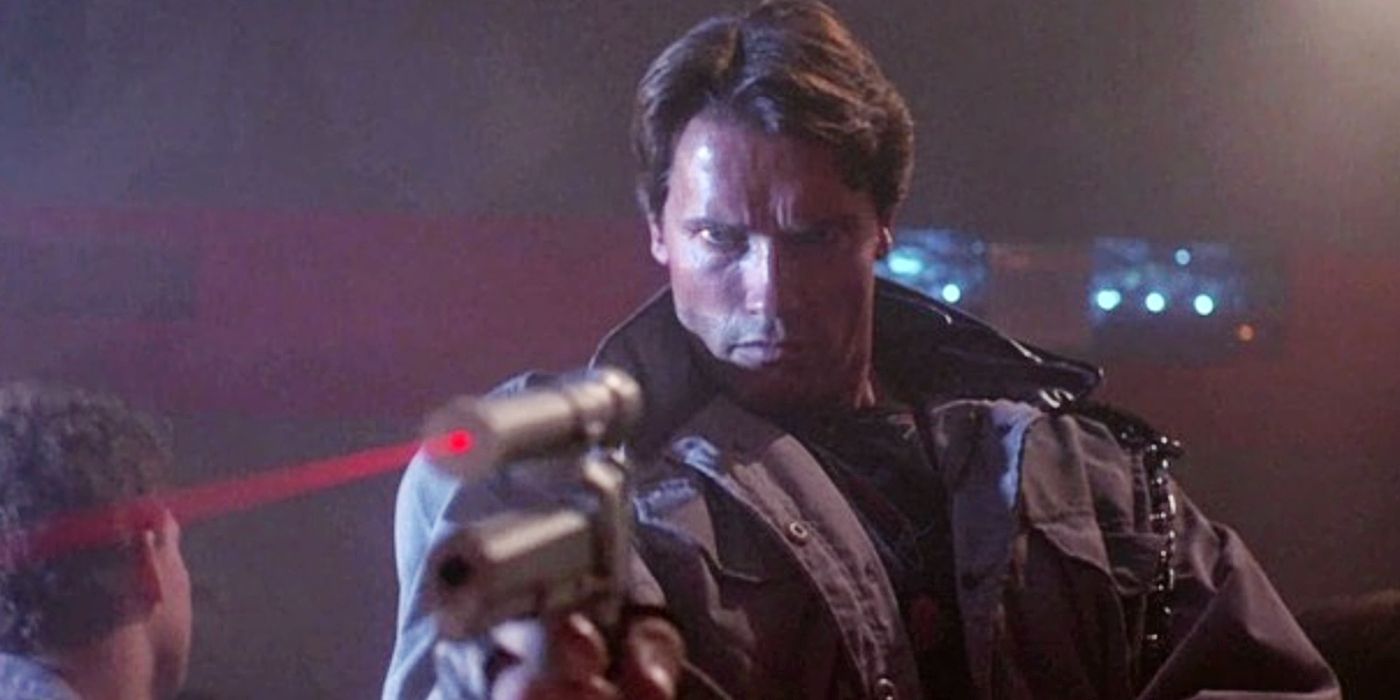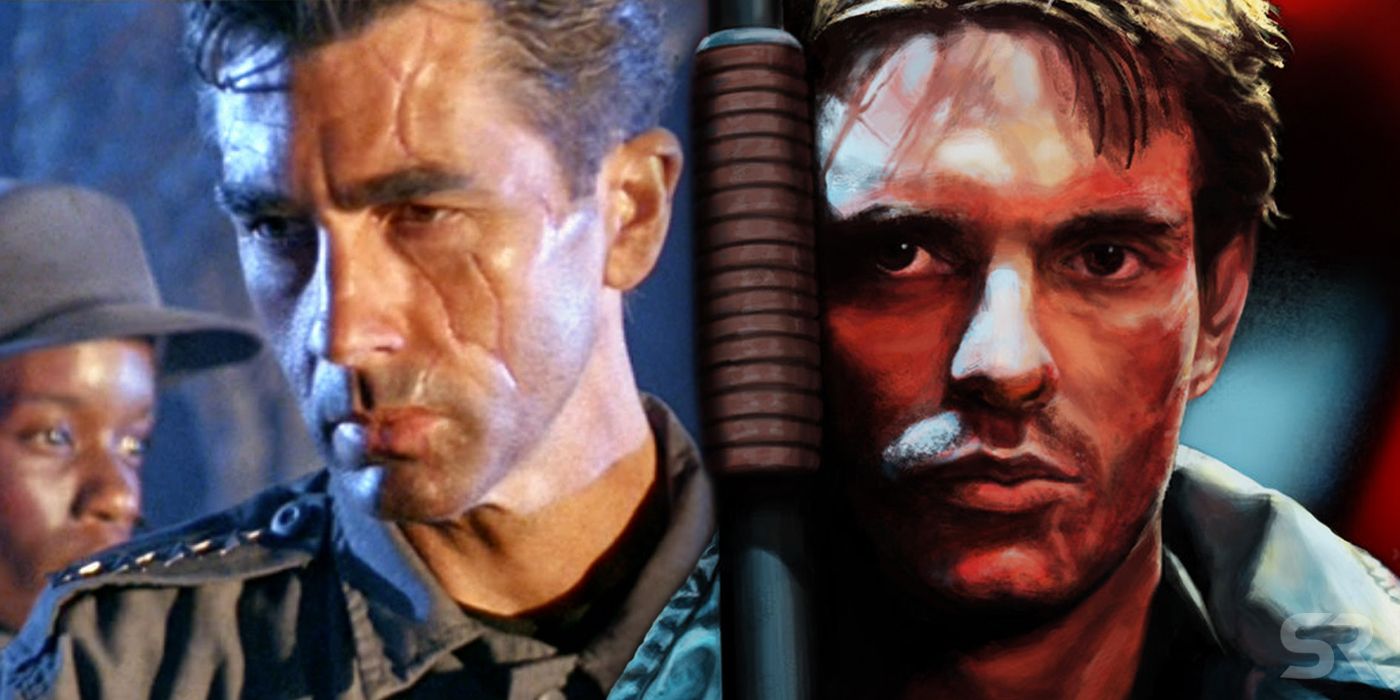When The Terminator hit theaters in October 1984, moviegoers were presented with a heaping helping of sci-fi action, and a truly confusing paradox ending. Successfully launching an epic franchise, The Terminator was made for a measly $6 million (via Box Office Mojo) but was a surprise success because of its clever writing and unique mixture of action and science fiction. The film helped establish director James Cameron as a force in Hollywood, and the film spawned a slew of successful film sequels, video games, and television shows. Aside from its financial success, The Terminator is one of the few action films to hold a 100% rating on Rotten Tomatoes.
Set in the present year of 1984, the film tells the story of a man from a dystopian future who is tasked with protecting Sarah Connor from the Terminator. While it excelled at its sci-fi premise and stunning action, it also originally featured gory horror scenes that added additional genres to the mix. Quite different from its faster-paced successors, The Terminator launched a franchise because it was a fresh idea that blended everything that the average moviegoer was looking for in the mid-'80s. Despite its accessibility to the masses, it didn't pull punches on its paradoxical storytelling, which made it smarter than the average blockbuster.
What Happened At The End Of The Terminator?
The T-800 was sent back in time from the year 2029, in order to kill Sarah Connor and Kyle Reese was a resistance fighter who was sent back to protect her. Along the way, the brutal Terminator went on a killing spree that involved eliminating any target in Los Angeles named Sarah Connor. Why Skynet picked 1984 to kill Sarah Connor was unclear, but the movie did reveal that the evil defense net only possessed scant information about her which made the rampage necessary. After being relentlessly pursued by the cyborg throughout the film, Connor and Reese were eventually cornered in a factory where they made their final stand.
Stripped of its flesh by an explosion, the metallic skeleton of the T-800 was revealed, and the film became a tense game of cat and mouse as the cyborg caught up with Connor. Even Reese's attempt to blow up the Terminator with another pipe bomb only succeeded in slowing it down and killing Reese. Finally, in an act of desperation, Connor crawled through a hydraulic press machine and was followed by the severely wounded cyborg. Cleverly catching the killer in a trap, Connor crushed the iconic T-800 and finally ended its terrible pursuit. An epilogue revealed Connor on the run and pregnant with her future son, John Connor.
Why Did The Terminator Want To Kill Sarah Connor?
One of the most underrated aspects of The Terminator was that it was essentially a mystery thriller for the first half of the film. A hulking monster stalking the streets of LA and killing anyone named Sarah Connor was reminiscent of the rise of fear regarding violent crime in the '80s, and Arnold Schwarzenegger was the perfect choice to play the T-800. However, the film did eventually reveal the cyborg's motivations in a scene where Kyle Reese spelled everything out for Sarah. It was revealed that it wasn't so much her that the robot was trying to stop, but her child who would play an important role in the future.
Skynet's first unsuccessful Terminator was sent back in time to eliminate Sarah Connor because she would eventually give birth to John Connor, a man who would lead a resistance against the machines in the 2020s. Reese explained that the near-future was a dystopian nightmare where Skynet, a cybernetic defense corporation, took control of the world by force and enslaved humanity with its nearly unstoppable army of machines. Instead of simply eliminating John Connor some time after his birth, Skynet opted to try to kill Sarah to completely rewrite the future and wipe out a potential threat before he was even born.
Kyle Reese Was John Connor's Father
Tasked with being the sole protector of humanity's future, Kyle Reese was also sent back in time from the year 2029 but to protect Sarah Connor from elimination. Though he was merely a man, his experience fighting the threatening T-800s in the future made him a prime candidate to save Sarah, and his emotional connection to John gave him additional motivation. However, things changed when Reese eventually revealed he had always been in love with Sarah thanks to a photo of her that was in John's possession in the future. This fascination had an unintended consequence as Reese's one-night fling with Sarah resulted in him being John's father.
The John Connor Paradox
Time travel in movies and TV is rarely straightforward, and the impact of changing the past to affect the future has always been a staple of the sci-fi genre. The Terminator didn't shy away from creating one of cinema's greatest time travel paradoxes, and used it to make commentary on the inevitability of the future, something that the sequels would also explore. Kyle Reese being John Connor's father immediately created a paradox as John Connor could not have existed without Reese's going back in time to save Sarah, and Reese would have never gone back in time if it wasn't for Connor.
The Terminator franchise isn't known for its delicate handling of time travel paradoxes, yet the original paradox remained the heart of the series all throughout the sequels. John Connor obviously deduced that Reese was his father through stories his mother told him, but it doesn't explain how Reese could have been in the future if he died in 1984. Even though it wasn't pretty, the paradox set up the future of the series and established a theme that would often be repeated. The franchise's central idea was that nothing could prevent the future from happening because the future would always guarantee itself through the past.
The Real Meaning Of The Terminator's Ending
Though the time travel elements of The Terminator created silly plot holes that have never been resolved, its epilogue ending was a simple but brilliant statement about the movie as a whole. Even as the film made broad commentary about the rise of random violent crime in the 1980s, it didn't stray away from its bigger idea that Skynet's rise was inevitable and unchangeable. Kyle Reese being John Connor's father was a brilliant twist, but the ending also left the door open for sequels while simultaneously being strong enough to help The Terminator stand on its own if no sequels ever came.






